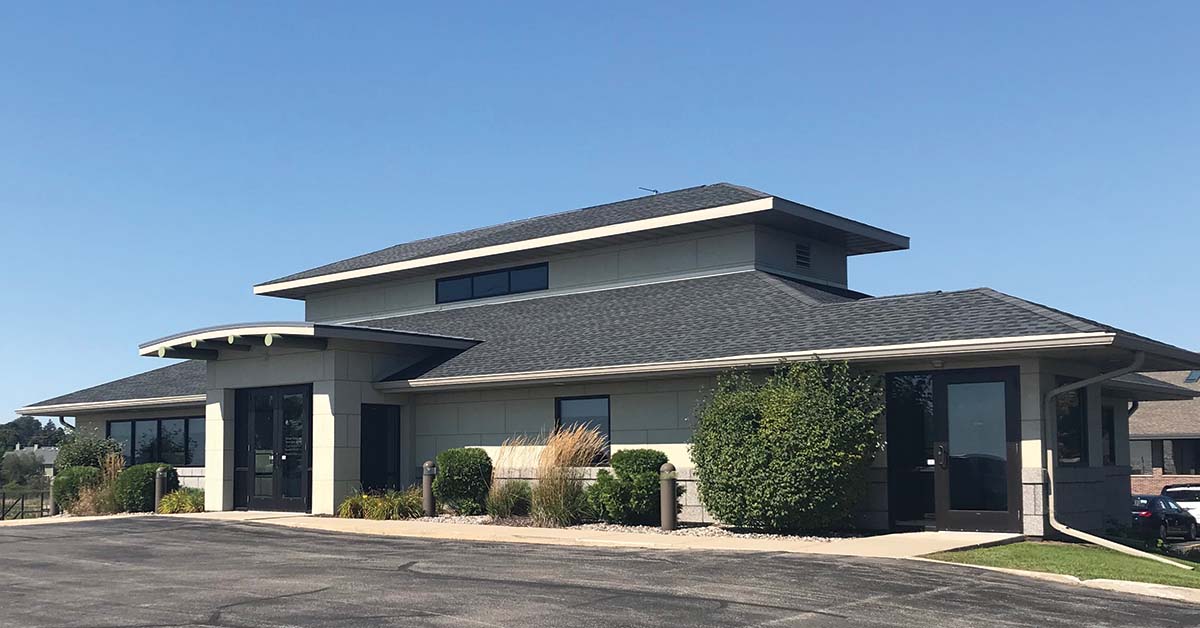Dental Implants
Oral Surgery & Implant Specialists
Restore your smile with dental implants
Dental implants are long-term replacement teeth that are anchored to the jaw bone with a small titanium post. They look and feel like natural teeth. They replace teeth and roots, allowing the jaw bone to remain strong and healthy.
Our oral surgeons will work with your dentist to provide the best outcome.
What is the dental implant planning process?
If you need to replace a tooth or multiple teeth, or to provide support for a bridge or denture, discuss dental implants with your dentist. Our oral surgeons will work with your dentist to provide the best outcome.
Or, ask for a referral to an oral surgeon to find out whether dental implants are right for you.
What is the dental implant procedure?
A titanium post is placed into the jaw bone during a procedure performed by an oral surgeon. The implant becomes fused to the jaw bone, replicating a natural tooth root. A dentist then places a crown onto the implant.
What if my jaw bone isn’t adequate for a dental implant?
Bone grafts can help build bone. They strengthen the jaw, where the implant will go. Cases involving bone grafts often take longer to complete, but the outcome will be as good as cases without a graft.
What is the timeline for a dental implant procedure?
Time required for a dental implant procedure varies, depending on the complexity of the procedure. In some cases, it can be done in one day. Most often, it takes 8 to 12 weeks for an implant to become stable and have a crown built on it. More complex cases can take three to six months to complete.
What are the advantages of dental implants?
Comfort and confidence. People who choose dental implants enjoy greater comfort and have more confidence than those with fixed bridges or removable dentures. Dental implants don’t decay like teeth that anchor fixed bridges. Dental implants won’t slip or make embarrassing noises like dentures.
Easy to clean. Caring for dental implants is the same as caring for natural teeth. Regular brushing and flossing keeps dental implants clean. Unlike dentures, they don’t need to be removed each night and placed in cleaning solution. Unlike a fixed bridge, they don’t need to be flossed under.
Best long-term investment. Dental implants are designed to last a lifetime if placed and cared for properly. Fixed bridges last about 10 years, on average. When fixed bridges fail, they can take one of the anchor teeth with them. Partial dentures can jeopardize the health of natural teeth. The clasps that engage other teeth put pressure on those teeth. That increases the likelihood of these teeth breaking or failing.
Preserving adjacent teeth. A dental implant does not involve any work on adjacent teeth. When teeth are missing, adjacent teeth can drift or tip into the gap. This can cause teeth to fit together improperly. Studies have shown that adjacent teeth fail at a higher rate if the gap is not filled with a dental implant or a bridge. When a fixed bridge is fabricated, a significant amount of healthy tooth material must be removed from anchor teeth.
Preserving the jaw bone. The jaw bone is one of the most dynamic bones in the body. The teeth and roots stimulate a complex process of bone growth and removal. If a tooth is missing, the jaw bone does not regenerate. When that happens, the jaw bone can slowly dissolve and disappear over time, creating the appearance of a sunken jaw.
Because dental implants are anchored in the jaw, they provide the same stimulation as natural teeth and stabilize bone growth. Dental implants provide the most aesthetic option for replacing missing teeth in the upper front jaw. If a missing tooth or teeth are replaced with a bridge or a partial denture, bone loss will cause a gray shadow under the restoration. That can be unsightly.
Does insurance cover dental implant procedures?
Our office files to both medical and dental insurance. An increasing number of insurers are helping to cover this procedure, but coverage depends on your medical or dental plan.
Before beginning treatment, our office sends a pre-determination query to your insurance carrier. Please feel free to ask us questions. Our goal is to provide the information needed to determine how to proceed with treatment.
How will I feel after having a dental implant procedure?
Most people return to normal activities after a few days. Many people are surprised at how good they feel after the procedure. Some people say the procedure is easier than having teeth extracted.
What can I expect after a dental implant procedure?
Avoid activities that could damage the surgical area.
Don’t wear dentures, partial dentures or other oral appliances after a dental implant procedure unless approved by your dentist and oral surgeon.
Most of our sutures – stitches – placed during a dental implant procedure are dissolvable. They typically dissolve within five to seven days. In some cases, they may be removed at the follow-up appointment after a procedure.
Avoid smoking, even before dental implant and bone grafting procedures. It increases pain and the risk of complications, including infection.
How do I care for my mouth after a dental implant procedure?
Follow these instructions to ensure your dental implant procedure is successful. They are specific to dental implant procedures.
Managing bleeding: There typically is less bleeding after a dental implant procedure than after most other dental procedures. If there is bleeding, fold a piece of gauze and moisten it with water. Place the folded gauze over the surgical area and bite down, applying soft but steady pressure for 30 to 45 minutes.
Managing pain: The level of pain that follows a dental implant procedure varies. It can be minimal, or there can be increased discomfort after bone grafting or other advanced treatment. If your pain is more than expected, please call us for assistance.
Managing swelling: The amount of swelling is greatest for dental implant procedures that involve bone grafting. For simpler dental implant procedures, swelling is typically about the same as that for a tooth extraction and less than that for a wisdom tooth removal. Swelling should start to subside two to three days after the procedure. If swelling continues or increases after three days, or if swelling redevelops after subsiding, please call us for assistance.
Caring for the mouth: Gently rinse your mouth on the day of a dental implant procedure. Use warm salt water after you eat and particularly at night before bed. Put one teaspoon of salt into a large glass of water. Gently brush your teeth, but avoid the surgical area. Gently rinse the toothpaste with water, but don’t spit out the water. Let the water fall gently from your mouth to the sink.
On the day after a dental implant procedure, gently brush the surgical area, avoiding damage to the gum tissue. Be careful if using electronic or ultrasonic toothbrushes. They may damage the gum tissue.
After the mouth is healed: See a dentist every six months to ensure the implant is healthy and functioning properly. Don’t chew ice or hard candy, which can damage teeth. Don’t use tobacco or caffeinated products, which stain teeth.
How does a sinus procedure differ from other procedures?
Occasionally, an unnatural opening between the sinus and the mouth may result from an oral surgery procedure. This unnatural opening is called a communication. They often heal with proper care. However, even with proper care, a communication between the sinus and the mouth can become permanent.
To minimize that risk, some special precautions may be needed because the sinus and the mouth are so closely related.
The best outcome from a sinus procedure happens when people follow all instructions for caring for themselves after surgery. Proper care for the mouth and facial structures is important for recovery.
How do I care for my mouth after a sinus procedure?
The first two weeks after a sinus procedure are vital to your recovery.
- A soft diet is recommended for seven to 10 days. Chew on the other side of the mouth, avoiding from the surgery area. Soft foods such as eggs, potatoes, pasta and ground meat can be swallowed with little or no chewing and with no risk of choking.
- Gently rinse the mouth with salt water for seven to 10 days. Put one teaspoon of salt into a large glass of water. Don’t rinse vigorously.
- Mild bleeding through the nose is common for several days after a procedure.
- Don’t use a straw for two weeks. The sucking action doesn’t help healing. Don’t suck or forcefully spit until you’ve had a follow-up appointment with your surgeon.
- Don’t forcefully blow your nose for two weeks. Lightly blot your nose, avoiding any air pressure, even if you have nasal discharge or your sinuses feel stuffy. If you’re congested, take over-the-counter decongestants.
If you sneeze, try to direct the pressure of the sneeze through your mouth, and not through the nose. This helps minimize sinus pressure.
Don’t smoke while healing. It is a major risk factor for a communication, or an unnatural opening between the sinus and the mouth, to become permanent.
Notify our office of any changes in your condition that concern you. Keep all follow-up appointments so your condition can be resolved as easily as possible.



